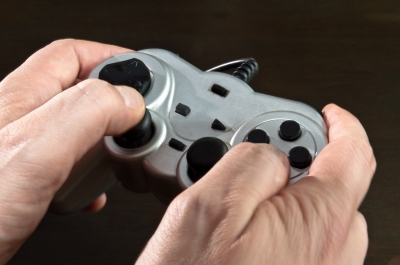
by Lauren Goodman | Dec 10, 2016 | Teen Addiction

Video Gaming Addiction in teenagers can cause serious relational difficulties.
Image courtesy of franky242 / FreeDigitalPhotos.net
Something you might be struggling with is how to control much your teenager uses video games. Teens completely lose track of time while they are playing engrossing and challenging video games. This can become so severe that they become sleep deprived, stop exercising, do all their socializing with other people playing the games and watch their grades plummet. You might feel like your relationship with your teenager has gone downhill. You used to spend time together but now they are always itching to get back on the computer or back to the Xbox. It’s driving you nuts! It also has you very worried.
What do you do?
Before you do anything you have to remind yourself that you’re the parent. This doesn’t mean you become rude or threatening, but it does mean you know it’s your house. You’re paying the bills. You most likely bought the Xbox. Once you firmly believe this and have truly gathered the grit you’ll need to regain who is in charge, you’re ready.
Step 1: You and your child’s other parent need to remember many times in the past when you set a boundary for your child out of love. Go back to when they were really small because it’s very straight-forward when they’re young. You used to make them hold your hand when they crossed the street. Although they wanted to run into the street, you stopped them because you loved them enough to keep them from being hit by a car. They might have protested and even tried to pull their hand away, but you held on tight. When they got a little bit older you didn’t let them go swimming without an adult present. You loved your child enough to tell them they had to wait until someone could sit and make sure they were safe at the pool. You loved them too much to let them drown. They might have protested then too, but you understood that children don’t necessarily see the danger in an activity they really want to do. When they were even older you made them finish their homework assignments. You understood that they didn’t want to do it, and you hated to see them struggle and be frustrated, but you loved them enough to ensure they could read, write and do some math. You get the idea. Come up with at least 10 examples of when you parented out of love even when your child didn’t appreciate the limits you set.
Step 2: You and the child’s other parent need to define the consequences of what will happen if your child continues to be addicted to video games. You don’t need to share this with your kid, you just need to know it for your own sake. You need to know what the metaphorical cars are that might hit your child if he runs into the metaphorical street. For example, “If my daughter continues to play 5 hours of video games per day, she will not develop the social skills she needs to have healthy friendships.” Another example is, “If my son continues to spend his whole weekend playing video games, he will not get the exercise he needs to have a healthy body and live a long, pain-free life.” Keep going with this until you have exhausted the list. Again, this is essential because you have to know the dangers from which you’re protecting your child. You have to see how addictive video gaming can lead to emotional death, physical ailment, stunted development, etc. This has to become scary enough to YOU that you are ready for the fight you will probably have when you set limits.
Step 3: Define the limits and consequences. You and your child’s other parent still need to work together on this. Decide together how often your teenager will have screen time, and what the consequences are if your teen sneaks more game time. Make sure you are both on the same page with this. If you truly think your child has an addiction then it is advisable to completely eliminate any form of computer and online gaming for at least 6 months. Your child needs to “dry out.”
Step 4: Present your plan to your teenager. You will probably get an argument, comments about how you’re stupid, or a lot of tears. Stay extremely calm and even show empathy (Remember, they’ve just lost their favorite activity and access to online friends). Do not bend though. This is not a compromise. You run your house and you are the parent.
I know this is not easy. Once you really walk through these steps you realize how much of an addiction your teenager has. It is alarming to realize the dangers your teen is facing. They are indirect dangers since your teenager is physically at home, in a chair. They are dangers that come from an isolated, inactive lifestyle. Stay the course and be patient. Eventually your child will actually tell you he or she is glad you intervened. This is once they re-engage in the real world. Until then, remember that loving your kid well doesn’t mean always being liked.
Helping teens grow and families improve connection,
Lauren Goodman, MS, MFT
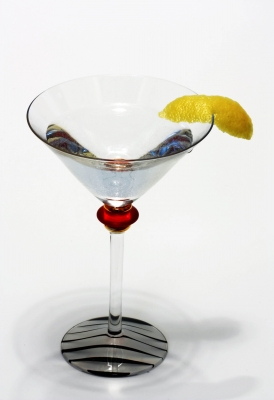
by Lauren Goodman | Dec 1, 2016 | Teen Addiction

Teen alcohol abuse is scary for any parent.
Image courtesy of freedigitalphotos.net.
Depending in what type of parent you are, it may or may not scare you when your teenager binge drinks. Some parents think it’s not a huge deal if their teen comes home drunk because “Kids experiment at this age.” Some parents even go to the extent of allowing their adolescents to drink with friends at their own house while parents are home “because at least then none of them are driving and there’s an adult around. They’re going to do it anyway. Now I know they’re safe.” Other parents are extremely upset if their teenager binge drinks, or drinks at all. They take away everything and ground their child for 3 months.
While there is not a one size fits all way to handle it if and when your teenager tries alcohol, there has to be some combination of understanding and consequences. However, if your teenager is frequently binge drinking, you might have a budding addiction on your hands; that needs to be dealt with in an entirely different manner than the teenager who gets drunk a couple times per year with friends.
One of the many jobs you have as a parent is to teach your child how to responsibly handle alcohol. Like it or not, it’s a huge part of our society. It seems like many teens think alcohol is something that exists to create a buzz or get drunk; this is a problem. It’s important to talk with your children about how adults can have a social drink or two, plan carefully for who will drive, and to understand the risks associated with overuse of alcohol. If you model appropriate use of alcohol in front of your teens, and keep the conversation open, you will have a lot to do with how they view alcohol. If you say nothing, then their other adolescent friends will teach them about alcohol… Some of you have a long family history of alcoholism. It may make sense for you to teach your child to avoid alcohol completely. In either case, adolescents need to know the why behind everything you’re teaching them, so explain, explain, explain.
A common definition of binge drinking is four or more drinks per sitting for females, and five or more for males. Binge drinking is linked to much higher incidences of alcohol dependence, car accidents, the spread of sexually transmitted diseases, etc.
This is scary information. Teens really don’t know what they’re getting into when they abuse alcohol. They tend to think everything will be fine. They also are not always likely to seek out help for someone who might have alcohol poisoning. They worry about getting into trouble so they don’t call a parent or 9-1-1. Please talk to your kids about this as well. What do you think about giving them immunity in the situations where they seek out help for someone who might be alcohol poisoned? Usually that means your teenager wasn’t where they said they’d be because it’s unlikely you’d have given them permission to be around other teens who are getting drunk.
Teen partying is here to stay. It’s been around since our parents were kids, and it will be an issue when our grandkids are teenagers. Keep the communication lines open with your teenager. Walk the line between applying consequences for their bad behavior and being understanding very carefully so they feel emotionally safe to keep telling you the truth. Teach them how to handle alcohol appropriately. Get help from a family member, a friend or a counselor if you are struggling with alcohol yourself. Approximately 10% of the American adult population struggles with alcohol in some way or the other. Admitting this and seeking help will benefit your children who are watching everything you do in more ways than you can imagine.
Helping teens grow and families improve connection,
Lauren Goodman, MS, MFT
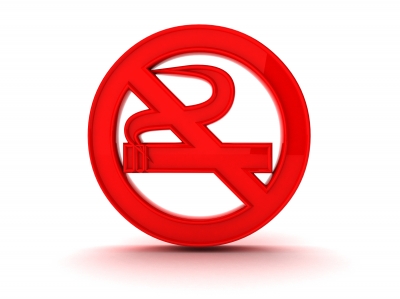
by Lauren Goodman | Nov 3, 2016 | Teen Addiction

The first days of sobriety after addiction can be intensely difficult.
Image courtesy of Danilo Rizzuti / FreeDigitalPhotos.net
Maintaining sobriety in the first 90 days is VERY challenging. Here are 10 tips to help stay on track:
1. Make sure you don’t have any mind-altering substances in your house. This means getting rid of all alcohol and cleaning out your medicine cabinet. Even if you did not struggle with these drugs, it is easy to substitute one high for another if you feel desperate.
2. Get a sponsor. This means finding someone who has been sober for awhile that will call you daily to check on you. This is your go-to person when you get a craving.
3. Put barriers in place. If you used to buy from the guy who worked the 5 pm shift with you, get your work schedule changed to work with him as little as possible.
4. Find a social group that is sober. Often if you have used for any significant length of time, your friendships are built around drinking or using. Go to Alcoholics Anonymous, Celebrate Recovery or Narcotics Anonymous and start participating. You have to make new friends who know how to have fun without substances.
5. Rediscover old hobbies. There are things you used to enjoy doing before you used. Make a list of them. Realize that early in sobriety these things will not sound fun. Go do them anyhow. You will like them once you are doing them.
6. Write a letter to yourself. You will have moments when all you remember is the pleasure of the high or buzz. You will need to read a letter from yourself to address these cravings. It helps a lot if you can remind yourself how miserable you got, lonely and desperate you felt, and physically tired you became.
7. Do not isolate. Often the process of getting sober is depressing. While your brain recalibrates, you might feel a lot of anxiety or depression. It can be hard to reach out to people in those times. However, spending a couple hours with a friend or family member is very refreshing, and pleasantly distracting.
8. Do not date anyone who is newly sober. If you are going to date from the Recovery community, pick someone who has at least 1 year of sobriety. I have seen a lot of people relapse because they thought, “We can do this together.” Both you and the newly sober person have to rediscover who you are, and how to live sober. It is easy to accidentally drag each other down.
9. Go to counseling. It is very helpful to work on the why behind the addiction. Understanding what led you there in the first place helps avoid relapse.
10. Get to know God. This is the best and most proven method of getting sober. All the 12-step programs are based on a foundation that God has made you for a purpose, and you are meant to fulfill that purpose. To know that the God of the universe loves you, forgives you, and wants you is incredible, especially for recovering addicts who often feel worthless and full of shame.
You and your teenager are on an incredibly difficult journey. There are moments when it feels easy, but there are moments of intense struggle. It is always a challenge to go through something as hard as getting sober without your preferred emotional coping mechanism (getting high) because that is the very thing you’re giving up. Do not let go of hope that you will learn how to cope with this, and eventually you’ll feel glad to be sober.
Helping teens grow and families improve connection,
Lauren Goodman, MS, MFT
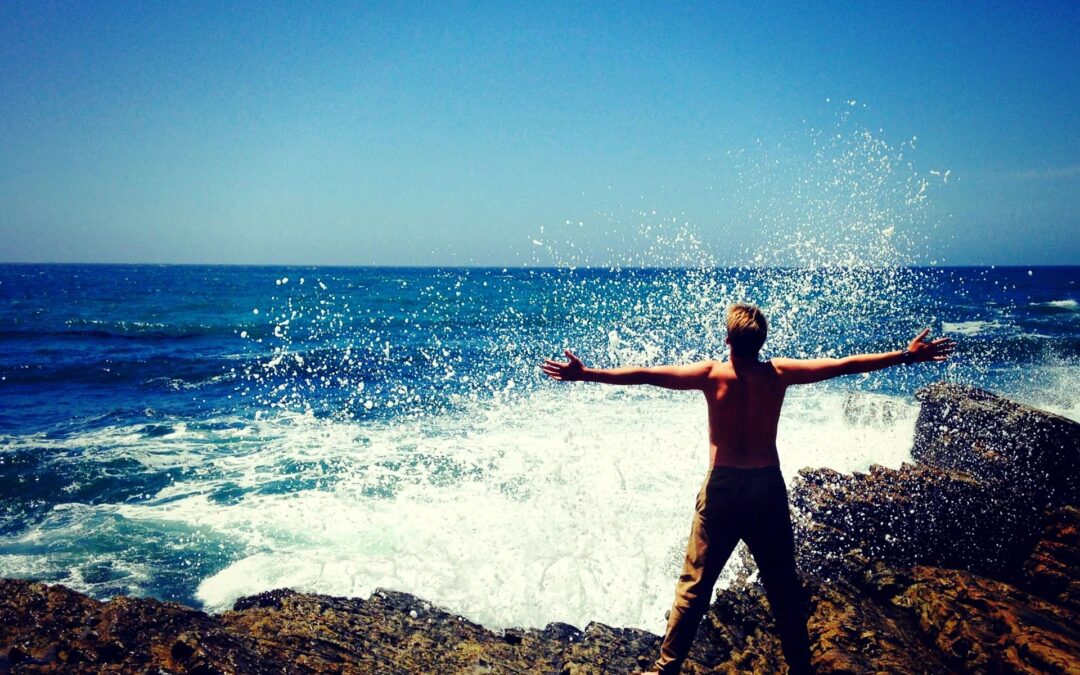
by Lauren Goodman | Sep 24, 2016 | Teen Addiction
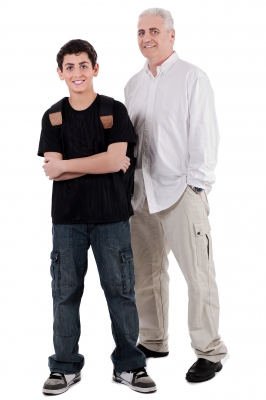
Teens have to recover from their parents’ addictions too.
Image courtesy of photostock / FreeDigitalPhotos.net
For teenagers who have had parents addicted to drugs or alcohol, life has been harder. It’s overwhelming and can be really unpredictable. Excessive drug and alcohol use make it hard for a parent to be fully present and available to their child. They are often parents who are filled with the best of intentions, but are very easily side-tracked by their need to drink, party or use a drug.
If you are a parent who has struggled with addiction, but are now recovering, you might wonder how your teen is supposed to heal from this too. You are astute enough to realize your adolescent does have some healing to do because you understand addiction actually never occurs in isolation, even if it is one of the most isolating struggles a person can face. You know it has affected your children. So what happens next?
I will base my answer on families I have worked with in the past who have dealt with this. This answer is predicated on the assumption that you are truly serious about your sobriety. It assumes you are not continuing to lie to yourself and your family (i.e. you no longer drink alcohol but you take a Xanax every single night in order to fall asleep).
The families I have seen where the addicted parent(s) truly change see a lag time in their teen’s adjustment. Their children have spent years learning to help the family hold it together. They have had times when they’ve gotten themselves to school. They have lied to other adults in order to avoid scrutiny for why they didn’t get their homework done, or were late to practice, or why Mom is not at such and such an event she was supposed to attend. They have possibly driven Dad home from a bar or a party. There has been a need for your child to create a self-sufficiency that is unnatural for their age. They are used to functioning this way, and they don’t immediately trust you enough to let their walls down.
What I have noticed is with consistency and honesty most of these kids do let their parents be parents again. It takes a lot of time, and some amount of struggle. However, deep down all they’ve wanted is for you to be be their safe home base. Now that you’re capable of being that, they are wary. However, if you are extremely patient and kind you will make headway. Help them to know you understand where you’ve fallen short. Don’t be afraid to apologize. Ask a lot of questions about how they’re feeling, but never tell them how they should be feeling.
You will have times where you sense your teenager trying to almost recreate some dysfunction in your relationship. Perhaps your son is now acting out, or your daughter is also experimenting with substances. Your child doesn’t know how to live without a certain amount of chaos. It takes quite a bit of time to detox from constant crisis. Create enough structure where your teenager is forced to forego a chaotic life, but expect them to seek it out for a time.
Most of all, remember your child loves you, and you love them too. Express this often, and be humble.
Helping teens grow and families improve connection,
Lauren Goodman, MS, MFT









